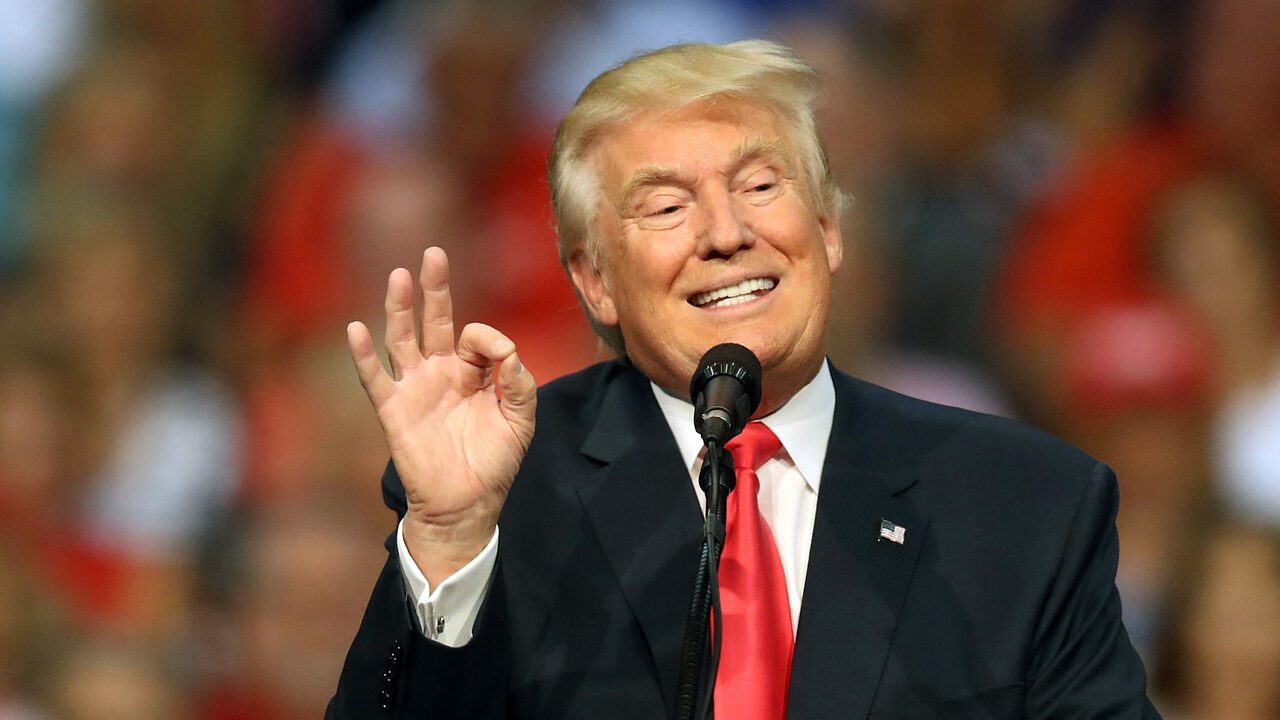Muhammad Asif Nour
President-elect Donald Trump's recent threat to impose 100% tariffs on BRICS countries if they move to create a common currency or challenge the dominance of the US dollar is an alarming reliance on economic coercion. Framed as a defensive strategy to protect U.S. economic dominance, this approach risks destabilizing global economic systems while accelerating the development of events it seeks to prevent. Targeting a coalition of diverse economies with comprehensive tariffs, Trump's move is a profound misjudgement of geopolitical dynamics and a short-sighted understanding of the interrelated nature of today's global economy.
The BRICS bloc-which consists of Brazil, Russia, India, China and South Africa and has now expanded to include countries such as Iran and the UAE – represents a significant part of the global population and economic output. These nations are not only passive players in the international system, but also emerging powers seeking to reshape the global order to reflect multipolarity. Their exploration of the common currency is not only an act of defiance of the US dollar, but also a pragmatic response to growing economic uncertainty and the rearmament of financial systems. Trump's tariff threats, rather than deflecting these efforts, are likely to solidify their resolve and reinforce calls for economic autonomy from Western influence.
The economic reason behind Trump's threats rests on the assumption that the dominance of the dollar is absolute and can be applied with retaliatory measures. However, the strength of the dollar has historically been tied to trust in U.S. financial institutions, the stability of the U.S. economy, and the liquidity of its markets. Imposing strict tariffs on BRICS countries contributes little to addressing these basic factors. Instead, it risks undermining global confidence in the U.S. as a reliable economic partner. Such measures send a signal that trade relations with the U.S. depend on political alignment rather than mutual benefit, prompting countries to seek alternatives.
The proposed tariffs also reveal vulnerabilities in the U.S. economy. BRICS countries are key suppliers of critical goods and raw materials, from Brazilian agricultural exports to Russian energy supplies and Chinese products. A 100% tariff would disrupt these supply chains, raising costs for U.S. consumers and businesses. The agricultural and manufacturing sectors in the United States, which depend on exports to BRICS markets, will face retaliatory measures that could undermine their competitiveness. This economic reaction would disproportionately affect lower-income households, amplifying the inflationary pressures that are already straining American consumers.
Trump's approach risks accelerating the fragmentation of the global economic order. BRICS countries, despite their internal differences, share a common interest in reducing dependence on Western-dominated systems. Tariffs of such magnitude would likely bring these countries closer together, encouraging stronger economic and political alliances. Initiatives such as the China Belt and road or India's regional trade deals could gain momentum as BRICS countries seek to isolate themselves from US economic pressure. By alienating these emerging powers, the U.S. risks losing its ability to shape global norms and influence key regions.
The inclusion of nations such as India and Brazil in this punishment framework is a significant flaw in Trump's strategy. Both countries have historically maintained strong ties with the West while balancing their roles within the BRICS. their targeting of harsh tariffs could weaken their alignment with the US and encourage deeper engagement with non-Western blocs. This would represent a significant strategic loss for the US, as India and Brazil often acted as moderating voices within the BRICS, advocating dialogue instead of confrontation. Trump's tariffs risk reversing this balance, consolidating anti-Western sentiment within the bloc.
One of the most significant consequences of these tariffs is the potential erosion of trust in multilateral institutions such as the World Trade Organization (WTO). The WTO framework, already under pressure from years of neglect and unilateral action, faces further challenges when major economies resort to such comprehensive measures. This undermines the principle of rule-based trade and sets a precedent for other nations to circumvent established norms in favor of unilateral action. The result is a fragmented trade landscape where smaller economies bear the burden of reduced cooperation and growing protectionism.
At the domestic level, Trump's tariff threats may appeal to segments of the electorate that favor economic nationalism. However, their application could yield counterproductive results. Higher commodity costs and potential job losses in export-dependent industries would likely offset any short-term political gains. Moreover, the long-term impact on U.S. credibility and influence in global trade would far outweigh the immediate benefits of calming protectionist sentiment.
A more effective approach would recognize the legitimate concerns raised by BRICS initiatives and address them through constructive engagement. Instead of resorting to punitive tariffs, the US could work to strengthen multilateral institutions, promote transparency in global financial systems, and work with BRICS countries on common challenges such as climate change and technological standards. By demonstrating a willingness to engage on equal terms, the U.S. could maintain its leadership role while fostering stability and inclusion in the global economic order.
Source: Center for Geostrategic Studies
7. December 2024.

